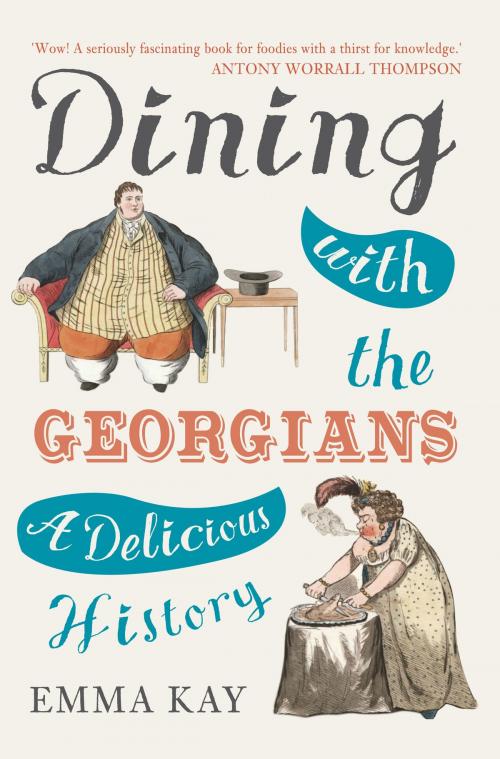| Author: | Emma Kay | ISBN: | 9781445636566 |
| Publisher: | Amberley Publishing | Publication: | October 15, 2014 |
| Imprint: | Amberley Publishing | Language: | English |
| Author: | Emma Kay |
| ISBN: | 9781445636566 |
| Publisher: | Amberley Publishing |
| Publication: | October 15, 2014 |
| Imprint: | Amberley Publishing |
| Language: | English |
A cup of coffee and a slice of cake, a glossy book in hand to cook for friends, Sunday lunch with the family at the local pub – most of us take these simple everyday pleasures for granted. But how did we learn to cook and what inspired us to get better at it? Today’s food-obsessed culture has its roots in the Georgian period. Kay explores how, as a consequence of wider trade and travel, people living in Georgian Britain witnessed the emergence of new and exotic ingredients. They learnt about new styles of cooking and the types of apparatus needed to achieve these. Chefs were recruited from overseas to work in Britain's stately homes, taverns and inns. The number of men and women employed as pastry chefs and confectioners increased by almost 20,000 from the end of the Georgian to the middle of the Victorian period. The market for recipe books was prolific during the eighteenth and early nineteenth centuries. This was also a time of great invention and the beginning of mass consumerism. The first washing machine was developed, early refrigeration was refined, tin canning emerged and the first gas stove was patented long before Queen Victoria ascended the throne. Discover the real histories of our domestic and commercial kitchens, how Britain fell in love with food and how progress and invention in the culinary arts is largely attributed to the Georgians.
A cup of coffee and a slice of cake, a glossy book in hand to cook for friends, Sunday lunch with the family at the local pub – most of us take these simple everyday pleasures for granted. But how did we learn to cook and what inspired us to get better at it? Today’s food-obsessed culture has its roots in the Georgian period. Kay explores how, as a consequence of wider trade and travel, people living in Georgian Britain witnessed the emergence of new and exotic ingredients. They learnt about new styles of cooking and the types of apparatus needed to achieve these. Chefs were recruited from overseas to work in Britain's stately homes, taverns and inns. The number of men and women employed as pastry chefs and confectioners increased by almost 20,000 from the end of the Georgian to the middle of the Victorian period. The market for recipe books was prolific during the eighteenth and early nineteenth centuries. This was also a time of great invention and the beginning of mass consumerism. The first washing machine was developed, early refrigeration was refined, tin canning emerged and the first gas stove was patented long before Queen Victoria ascended the throne. Discover the real histories of our domestic and commercial kitchens, how Britain fell in love with food and how progress and invention in the culinary arts is largely attributed to the Georgians.















